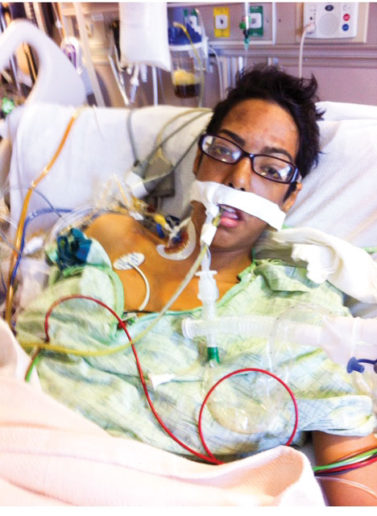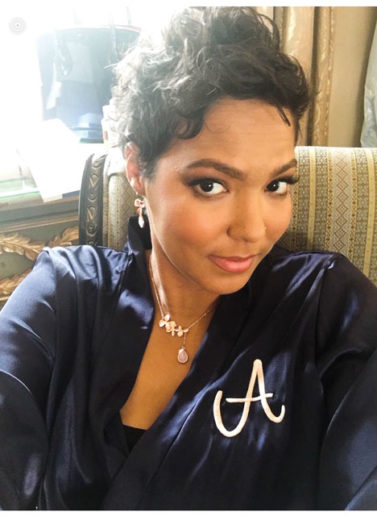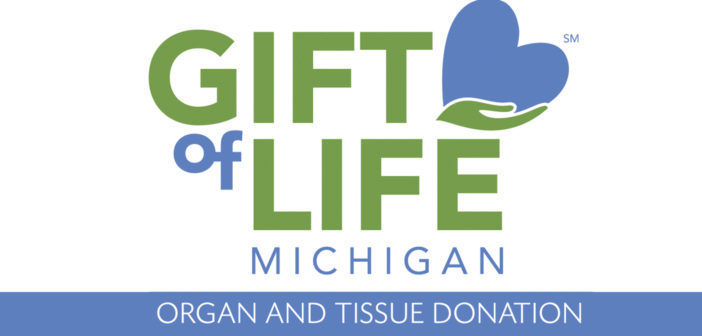Who would have thought that checking the Organ Donor “yes” box at the Secretary of State office could make a world of difference in someone’s life? According to Shalonda Griffin, Community Relations Coordinator with Gift of Life Michigan (GOLM), you have the potential to save eight lives by becoming an organ donor – and it’s as simple as saying “yes!”
Griffin reports that GOLM had record numbers last year. The organization helped a record 338 patients become organ donors, leading to life-saving transplants for well over 1,000 people – the first time the state has exceeded that mark. “Secretary of State is really great at asking people to donate,” notes Griffin, adding that it had become mandatory for SOS staff to ask customers if they wanted to register to become donors.
Gift of Life also had record numbers in tissue donation in 2018, with 1,384 people donating. “The tissue will help patients suffering from debilitating injuries and illnesses regain mobility and find relief from pain,” says Griffin.
Michigan also added nearly 400,000 people to the Michigan Organ Donor Registry, bringing the number of registered donors to about 5.2 million. That’s nearly two-thirds of adults in the state.
However, there are still 3,100 people in the state who need a life-saving organ transplant and 114,000 nationwide. “Every day, 22 people die waiting for a transplant,” says Griffin. “That’s why it is so important for you to add your name to the list. It takes just 30 seconds to register, regardless of your age or health issues.”
 Alena’s Story
Alena’s Story
Flint native, Alena Christian, 34, is one of the lucky ones. She received a life-saving organ donation after her liver was affected by auto-immune hepatitis. She was just a teenager when she first became ill. “I was told then that I would need a liver transplant,” she reports. “It was scary, but I made it through high school and college.” In her late 20s, Alena started having some real health problems. “My liver was failing,” she remembers, “and I was in and out of the hospital.”
In 2012, she was put on the liver transplant list and waited for two years while getting sicker and sicker. Fluid would build up in her abdomen and she had to go to Henry Ford Hospital in Detroit to drain the fluid. “I was also constantly nauseous and I was just skin and bones,” she remembers.
After waiting for such a long time, her doctors decided that she should consider a living donor, so both of her sisters flew home from Utah to be tested for matching. It was determined one of them was a match. “She was willing to give me a piece of her liver,” Alena shares, and a surgery date was set for November 1, 2014.
“Someone made a decision to donate, and it saved my life.”
Alena Christian
Before that procedure could take place, Alena received a call from GOLM that they had a liver for her. “I was glad my sister didn’t have to go through the surgery, but I was so glad that she had offered. At the time, it was getting really rough.”
When Alena got the call, she was so overwhelmed she couldn’t even speak. “They asked me if I wanted to accept it. I just started crying like a baby and handed the phone to my mom. I was so relieved,” she admits. “It had been two long years, and this was my chance to change everything.”
 So, on November 4, 2014, Alena had the transplant at Henry Ford. “I was scared,” she remembers. The surgery was successful, but she had a few setbacks. She developed sepsis and her kidneys shut down, forcing her to begin dialysis treatment. But she persevered and after four months, her kidneys started working again. “I just wanted to live. I don’t take anything in life for granted. I had waited for two years and I fought hard for my life.”
So, on November 4, 2014, Alena had the transplant at Henry Ford. “I was scared,” she remembers. The surgery was successful, but she had a few setbacks. She developed sepsis and her kidneys shut down, forcing her to begin dialysis treatment. But she persevered and after four months, her kidneys started working again. “I just wanted to live. I don’t take anything in life for granted. I had waited for two years and I fought hard for my life.”The recovery period was lengthy: 90 days at Henry Ford and then to Hurley Inpatient for a month of rehab. “I had to rebuild my muscles and my strength,” she says.
Four-plus years later, Alena is making up for lost time. She is working and engaged to be married. She and her fiancé have spent some time traveling and visiting her sisters in Utah. She also volunteers for GOLM.
“Someone made a decision to donate and it saved my life,” Alena says, “and I want to give back.” She attends GOLM events, speaks at schools and shares her story. “A donor can potentially save eight lives,” she shares. “I don’t know who my donor is, but I would love to express to the family how grateful I am. It saved my life.”
April is National Donate Life Month
National Donate Life Month is marked by events that raise awareness of the importance of organ donation. The purpose is to “encourage Americans to register as organ, eye and tissue donors and to celebrate those who have saved lives through the gift of donation.” April has been designated National Donate Life Month since 2003.
Friday, April 12 is National Donate Life Day. In Michigan, volunteers in Secretary of State offices encourage donor registrations by providing information about becoming an eye, organ and tissue donor. It is a collaboration between Eversight, (the Michigan eye bank that makes cornea donation possible), Gift of Life Michigan, the Secretary of State, and Lions and Lioness Clubs, as well as many volunteers who help make it possible.
About Gift of Life Michigan
Headquartered in Ann Arbor, GOLM is the state’s only federally designated organ and tissue recovery program, providing all services necessary for organ donation to occur in Michigan. The non-profit organization works 24 hours a day statewide as a liaison between donors, hospitals and transplant centers.
Gift of Life was incorporated in 1971 by Michigan transplant surgeons to provide a network for sharing kidneys. Today, GOLM recovers more than 900 organs every year for transplantation from 300 or more donors, saving hundreds of lives. Bone, skin and other tissue also is recovered, helping to significantly improve the lives of thousands of seriously injured and sick recipients. Gift of Life also works with Eversight to manage cornea and eye donation.
In addition, Gift of Life maintains and grows the Michigan Organ Donor Registry in partnership with the Michigan Secretary of State. The registry is a confidential database of people who have expressed their desire to someday help others by becoming an organ, eye and tissue donor.
Photos Provided by Alena Christian








